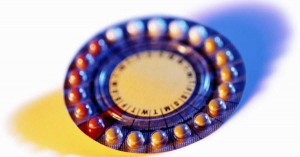 The minds of women who plan to get pregnant are flooded with concerns about the growing baby. One such concern involves drinking alcohol while pregnant. Today, most if not all OB/GYNs advise against imbibing because of the danger to the baby in utero and the possibility of fetal alcohol syndrome after birth. This avoidable condition causes growth problems and brain disorders. To prevent this, women who plan on becoming pregnant take precautions. That is, unless they are not aware of the possibility that they are already pregnant—or unless they don’t want to be pregnant.
The minds of women who plan to get pregnant are flooded with concerns about the growing baby. One such concern involves drinking alcohol while pregnant. Today, most if not all OB/GYNs advise against imbibing because of the danger to the baby in utero and the possibility of fetal alcohol syndrome after birth. This avoidable condition causes growth problems and brain disorders. To prevent this, women who plan on becoming pregnant take precautions. That is, unless they are not aware of the possibility that they are already pregnant—or unless they don’t want to be pregnant.
These latter groups of women are the ones the Centers for Disease Control and Prevention was targeting when this statement was published in its Morbidity and Mortality Weekly Report entitled Vital Signs:
CDC analyzed data from the 2011–2013 National Survey of Family Growth to generate U.S. prevalence estimates of risk for an alcohol-exposed pregnancy for 4,303 nonpregnant, nonsterile women aged 15–44 years, by selected demographic and behavioral factors. A woman was considered at risk for an alcohol-exposed pregnancy during the past month if she had sex with a male, drank any alcohol, and did not (and her partner did not with her) use contraception in the past month; was not sterile; and had a partner (or partners) not known to be sterile.
In other words, the CDC recommends that women who aren’t on birth control shouldn’t drink alcohol.
We will see the problem with this in just a minute, but first let’s look at the reaction on Twitter. This controversial statement caused people to post feminist comments like this one:
the #cdc is acting as if women aren’t humans but rather just baby-making vessels
— hannah (@hantaloupe) February 4, 2016
Yet we see and are aware of a deeper problem. The CDC is implying that young women who are old enough to drink cannot possibly be in the category of chaste females who simply like to socialize with their friends. The CDC is also leading the public to consider the possibility that, from the age of 15 onward, females who do drink need to use birth control because self-control is not a consideration. I believe the word such doubters would use is unrealistic.
The underlying message from the CDC is simple: Young women do not use self control, do not believe in saving sex for marriage, and need the Big Brother government telling them how to behave in public.
Please don’t get me wrong here. There is no question that fetal alcohol syndrome is a growing problem in America. There is no doubt that when an expectant mother drinks during pregnancy, her baby is at risk of suffering the tragic side effects of this condition. In addition, there is no question that teenage drinking—including binge drinking—is worse than ever.
Furthermore, we see this mentality in a quote from a website that, while surely not pro-life, makes this point for us: “Women who take daily birth control pills and enjoy drinking alcoholic beverages from time to time can rejoice in a bit of good news. Alcohol doesn’t impact birth control’s effectiveness. Alcohol does, however, impact behavior and judgment. This can lead to a mishap with your birth control.”
Mishap would mean baby!
In other words, whether intentionally or not, the CDC has added yet another layer of risk to an already burgeoning problem among young people. It has sent this invitation to females, and I daresay males as well: Go ahead and have that drink; just be sure you use birth control. And if it impacts your behavior and your judgment, nobody is to blame!
Is that really the message young people need to hear today? Are this nation’s health care watchmen really that misguided?
Let’s face it: Fetal alcohol syndrome is caused by a mother drinking alcohol during pregnancy. The birth control pill is not the panacea these governmental bozos think it is. However, chastity before marriage is!
Let’s hear it for common sense! Protect yourself from getting pregnant by practicing self-control, people! That way nobody is hurt physically, psychologically, or spiritually.



